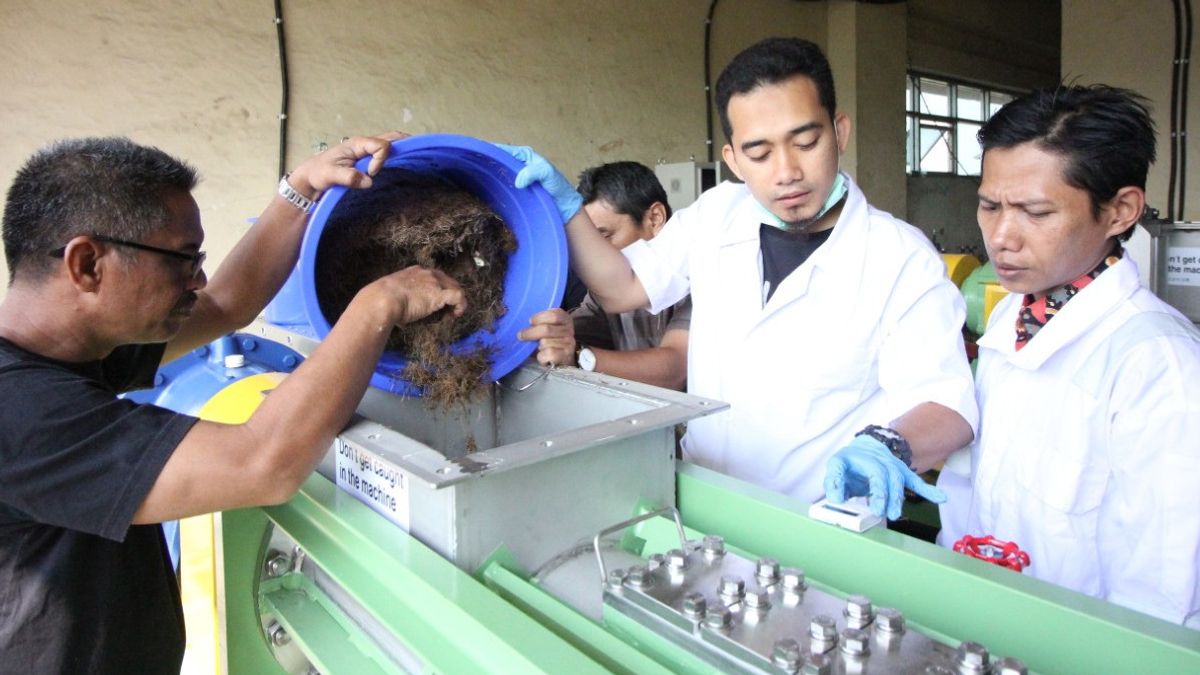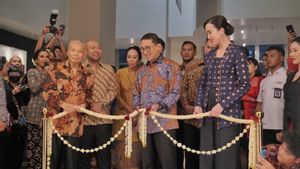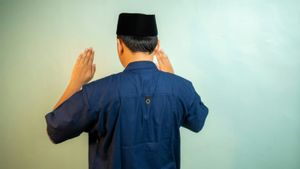JAKARTA - The Ministry of Industry is collaborating with Japanese companies to develop pulp and pulp products from the waste of Oil Palm Empty Bunches (TKKS). This strategic effort was realized by the Pulp and Paper Center (BBPK) together with a consortium of PIC Co., Ltd and Taizen Co., Ltd, which are engaged in the manufacturing and sales of industrial pulp and paper machines.
"This synergy step is carried out through the Japan International Cooperation Agency (JICA) program. Mechanically, the technology used is from Taizen Co., Ltd, where the EFB waste can be used as raw material for the paper and cardboard industry, "said Secretary of the Industry Research and Development Agency (BPPI) of the Ministry of Industry, Restu Yuni Widayati in Jakarta, Monday, February 10. .
Through this collaboration, Restu hopes that the pulp and paper industry can be more independent and no longer dependent on old corrugated cardboard (OCC) paper.
"Apart from that, for the palm oil industry, it also has the advantage of being able to reduce the processing costs and disposal of by-products that have been done so far," he said.
Restu explained, the PIC & Taizen team had brought Taizen technology from Japan to Indonesia to be operated within BBPK Bandung. It is hoped that the use of this technology can contribute to solving environmental problems in Indonesia, especially for the palm oil industry as well as the pulp and paper industry.
So far, the pulp and paper industry has contributed significantly to the national economy. The Central Statistics Agency (BPS) noted that in 2019, the paper and paper goods industry, printing and reproduction of recorded media contributed 3.95 percent to the non-oil and gas processing industry with a growth of 8.14 percent.
In fact, the Indonesian Pulp and Paper Association (APKI) assessed that domestic and global demand continues to increase by 2 percent. "The need for paper is currently dominated by packaging. One of them is absorbed by the packaging paper industry, namely in the form of medium and liner paper to produce packaged cardboard boxes, "said the Head of BBPK Saiful Bahri.
In order to supply this demand and at the same time substitute imported raw materials, Restu stated, alternative raw materials that have great potential to be utilized are TKKS. Moreover, Indonesia has an advantage over palm oil production.
In addition, it is in line with the government's determination to encourage the downstream program which aims to increase the added value of domestic raw materials.
Referring to data from the Directorate General of Plantations at the Ministry of Agriculture, throughout 2019, the area of oil palm plantations in Indonesia is estimated to be around 14.68 million hectares, with total production reaching 51.8 million tons per year or the largest in the world.
Each unit weight of palm fresh fruit bunch (FFB) is projected to produce 21-23 percent of EFB. So far, the EFB has been mostly used for garden fertilizer or fuel for the CPO industry.
It is estimated that, under current conditions, oil palm plantations can meet the demand for paperboard (medium linear) to reach 45 million tons.
The English, Chinese, Japanese, Arabic, and French versions are automatically generated by the AI. So there may still be inaccuracies in translating, please always see Indonesian as our main language. (system supported by DigitalSiber.id)








